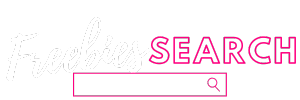edX is a prominent online learning platform that was founded in 2012 by Harvard University and the Massachusetts Institute of Technology (MIT). It has since evolved into a global hub for education, offering a wide array of courses from top universities and institutions around the world. The platform provides learners with the opportunity to engage with high-quality educational content across various disciplines, including computer science, business, humanities, and data science.
While edX is well-known for its extensive catalog of free courses, it also offers premium content that enhances the learning experience through verified certificates, MicroMasters programs, and professional certificates. Premium content on edX is designed to provide learners with a more structured and recognized educational experience. For instance, verified certificates serve as proof of completion and can be a valuable addition to a resume or LinkedIn profile.
These certificates are particularly beneficial for professionals looking to advance their careers or switch fields. Additionally, MicroMasters programs offer a series of graduate-level courses that can be credited towards a full master’s degree at participating institutions. This blend of free and premium offerings allows edX to cater to a diverse audience, from casual learners seeking knowledge to serious students aiming for academic credentials.
Key Takeaways
- edX offers premium content for a fee, providing access to high-quality courses and programs.
- There are free access options on edX, including auditing courses and accessing free course materials.
- Financial assistance and scholarships are available for those who need help covering the cost of premium content.
- Free certificates and MicroMasters programs can be accessed on edX, providing valuable credentials at no cost.
- There are various free resources and materials available on edX to support learning and skill development.
Understanding edX’s Free Access Options
One of the most appealing aspects of edX is its commitment to providing free access to a wealth of educational resources. Many courses on the platform are available at no cost, allowing learners from all backgrounds to engage with high-quality content without financial barriers. This democratization of education aligns with edX’s mission to increase access to learning opportunities globally.
Users can explore various subjects and disciplines without the pressure of tuition fees, making it an attractive option for lifelong learners and those seeking to enhance their skills.
Free access on edX typically includes the course materials, lectures, and assignments. However, it is essential to note that while learners can participate in the course and gain knowledge, they may not receive a verified certificate upon completion unless they opt for the paid version.
This model encourages learners to focus on the educational experience itself rather than solely on certification. Furthermore, many courses are designed with flexibility in mind, allowing users to learn at their own pace and revisit materials as needed. This accessibility fosters an inclusive learning environment where individuals can pursue their interests without financial constraints.
Exploring Audit and Free Course Options

When enrolling in courses on edX, learners often encounter two primary options: auditing the course or enrolling in the free version. Auditing allows users to access course materials without participating in graded assignments or receiving a certificate. This option is ideal for those who wish to explore a subject matter without the pressure of deadlines or assessments.
For example, a professional interested in data analysis might audit a course on Python programming to gain foundational knowledge before deciding whether to pursue further studies in that area. On the other hand, the free course option typically includes access to all course materials, including lectures, readings, and assignments. While learners can complete assignments and engage with peers, they may not receive formal recognition for their efforts unless they choose to pay for a verified certificate.
This structure provides flexibility for learners who want to deepen their understanding of a subject without committing to a full-fledged program. Additionally, many courses offer discussion forums where learners can interact with instructors and fellow students, fostering a sense of community even in a virtual environment.
Utilizing Financial Assistance and Scholarships
Recognizing that financial constraints can hinder access to education, edX offers financial assistance programs designed to support learners who may struggle to afford premium content. Eligible students can apply for financial aid that covers up to 90% of the course fees for verified certificates. This initiative is particularly beneficial for individuals from low-income backgrounds or those facing economic hardships who still wish to pursue their educational goals.
The application process typically requires applicants to provide information about their financial situation and explain how the course will benefit them professionally or personally. In addition to financial assistance, edX also collaborates with various organizations and institutions to provide scholarships for specific programs or courses. These scholarships can cover tuition fees entirely or partially, making it easier for learners to access high-quality education without incurring significant debt.
For instance, some universities may offer scholarships for students enrolling in MicroMasters programs that align with their academic goals.
By leveraging these financial resources, learners can take advantage of edX’s premium offerings while minimizing their financial burden.
Accessing Free Certificates and MicroMasters Programs
While many courses on edX require payment for verified certificates, there are opportunities for learners to earn free certificates through specific initiatives or promotional offers. Occasionally, edX partners with institutions or organizations to provide free certificates for select courses as part of a broader educational campaign or outreach effort. These opportunities are often time-sensitive and may require learners to complete specific tasks or meet certain criteria within a designated timeframe.
MicroMasters programs represent another avenue for learners seeking advanced credentials without incurring substantial costs. While these programs typically involve a fee for the entire series of courses, some institutions may offer financial aid or scholarships specifically for MicroMasters participants. Completing a MicroMasters program can significantly enhance one’s qualifications and may even lead to credit towards a full master’s degree at participating universities.
This pathway allows motivated learners to gain advanced knowledge in their field while potentially saving on tuition costs associated with traditional degree programs.
Finding Free Resources and Materials

Beyond formal courses, edX provides an array of free resources and materials that learners can utilize to enhance their educational experience. The platform hosts a variety of open educational resources (OER), including lecture notes, reading materials, and supplementary videos that are accessible without enrollment in a specific course. These resources can be invaluable for self-directed learners who wish to explore topics at their own pace or supplement their existing knowledge.
Additionally, many instructors on edX curate lists of recommended readings and external resources that learners can access freely online. This practice encourages students to engage with diverse perspectives and deepen their understanding of complex subjects. For example, a course on global health might include links to research articles, policy papers, and case studies that provide real-world context for the theoretical concepts discussed in lectures.
By leveraging these free resources, learners can create a more comprehensive learning experience tailored to their interests and goals.
Participating in Community and Open Discussion Forums
A significant advantage of online learning platforms like edX is the opportunity for community engagement through discussion forums and collaborative spaces. These forums allow learners from diverse backgrounds and locations to connect, share insights, and discuss course materials in real-time. Participation in these discussions can enhance understanding by exposing learners to different viewpoints and interpretations of the subject matter.
Instructors often facilitate these forums by posing questions or encouraging students to share their experiences related to course topics. For instance, in a course on entrepreneurship, students might discuss their business ideas or challenges they face in starting a venture. This interaction not only fosters a sense of belonging but also encourages peer-to-peer learning, where students can learn from each other’s successes and setbacks.
Engaging actively in these community spaces can significantly enrich the overall learning experience on edX.
Tips for Maximizing Your Learning Experience on edX
To fully leverage the educational opportunities available on edX, learners should adopt strategies that enhance their engagement and retention of information. One effective approach is setting clear learning goals before enrolling in a course. By identifying specific objectives—such as mastering a particular skill or gaining knowledge in a new field—students can tailor their study habits accordingly and stay motivated throughout the course.
Another valuable tip is to create a structured study schedule that allocates dedicated time for coursework each week. Consistency is key in online learning environments where distractions abound; having a routine helps maintain focus and ensures that learners stay on track with assignments and discussions. Additionally, taking notes during lectures and actively participating in forums can reinforce understanding and retention of material.
Finally, leveraging external resources such as study groups or online communities outside of edX can further enhance the learning experience. Engaging with peers who share similar interests or goals can provide additional support and motivation while fostering collaborative learning opportunities that extend beyond the confines of individual courses. By implementing these strategies, learners can maximize their educational journey on edX and make the most of the platform’s rich offerings.
FAQs
What is edX?
edX is an online learning platform that offers a wide range of courses from universities and institutions around the world. It provides access to high-quality education and learning resources.
What is premium content on edX?
Premium content on edX refers to courses and learning materials that typically require payment or a subscription to access. These courses may offer additional features or certifications upon completion.
How can I access free premium content on edX?
You can access free premium content on edX by auditing courses. When you audit a course, you can access all the course materials for free, but you won’t receive a certificate upon completion.
Are there any other ways to access free premium content on edX?
Some courses on edX offer financial assistance or scholarships for learners who cannot afford the course fees. Additionally, edX occasionally offers free trials for premium content.
Can I access all premium content on edX for free?
Not all premium content on edX is available for free. However, there are many courses and learning materials that can be accessed for free through auditing or financial assistance options.






